Sustainable Tracking of RTIs thanks to RFID
Logistics services provider Recalo monitors its pool of returnable transport items (RTI) with a track and trace solution from Turck Vilant Systems and thus reduces its customers' CO2 footprint
Recalo offers its customers the possibility of pooling returnable load carriers, the so-called returnable transport items or RTIs. To always know where a particular load carrier is currently located in the cycle, the company relies on an RFID tracking system from Turck Vilant Systems, which ensures the transparency required for the exact provision of the service to each customer via interfaces to the ERP. To ensure maximum truck utilization, the system even shows employees how high the stacks of boxes need to be in order to make optimum use of the loading capacity. Thanks to this efficiency and the long service life of the RTIs, the Recalo solution effectively reduces its customers' carbon footprint.
German restaurants and catering businesses have been required by law since January 2023 to use reusable containers. Businesses that offer food and drinks to take away or as a delivery service must offer reusable packaging as an alternative to disposable plastic packaging. This regulation is not yet in force in industrial sectors. Disposable packaging and load carriers, whether made of wood, plastic, paper or metal, are often still the order of the day in this sector. The problems associated with the ecological consequences of this practice are obvious. Plastic packaging and stretch film in particular, which is wrapped around the load like oversized cling film, can rarely be recycled. Disposable packaging also often does not meet the hygiene requirements of the food and consumer goods industry.
Returnable load carriers as a sustainable logistics solution
You don't always need legislation to make things better. Recalo GmbH in Laatzen near Hannover is proof of this. “The core of our business is the pooling of returnable transport items,” explains managing director Daniel van der Vorst. “Sustainability is the focus of our business model. This means that we ensure optimum utilization of our truck transports by using returnable load carriers that are optimized for the load capacities of the trucks. The aim is to achieve maximum output with minimum handling and transportation, i.e. to offer our customers the best possible service using as few resources as possible.”
Efficiency benefit in the pooling system
In logistics, returnable load carriers are often referred to as returnable transport items or RTIs for short. Customers use the full service provided by Recalo. The pooling operator sends cleaned and reconditioned RTIs to its customers. These customers use the RTIs to ship their own supplier products and components. Once the RTIs have been dispatched, Recalo organizes the return of the load carriers and takes care of all further processes.
The customer therefore saves the investment in RTIs and has nothing to do with the management, cleaning and repair of returnable load carriers. Peaks in demand can also be bridged at short notice. The RTIs in the pooling system are always in circulation and never stand around unused for long. Thanks to its close network of logistics partners and customers, Recalo can organize the return of the pallets very efficiently and make optimum use of its trucks.
Tailored transport solution
The company also develops specific load carriers for its customers, such as a collapsible plastic box with a divider shelf, which halves the pressure on the lower boxes and thus prevents unsightly deformation and problems with automatic removal. This box is based on the footprint of a Euro pallet and is almost one meter high when opened out. After unloading, it can be collapsed and is then only 30 centimeters high with the same footprint, including the divider shelf. The boxes are designed so that the transport space of the truck can always be filled up to the edge of the load – both with the boxes opened out and collapsed.
RFID system for complete process transparency
Recalo therefore uses a hybrid solution and equips its pallets with labels that combine barcodes and RFID UHF tags. The hybrid tag enables every Recalo load carrier to be clearly and efficiently identified by the system, regardless of which technology is used at the respective location. Van der Vorst spoke to the track and trace specialists from Turck Vilant Systems for the first time at a trade fair. “I noticed straight away that Turck Vilant really understood the processes and the problems we face. It was important for us to have an internationally based company as a partner, so that support for our overseas locations is also guaranteed”, says the managing director, describing his reasons.
Turck Vilant Systems developed a complete system for Recalo consisting of RFID read/write points that are operated via the Turck Vilant Client middleware. They are used to carry out central tasks such as the checking in or out of an RTI in the pool. This data is then processed by the Turck Vilant Visibility Manager. This server application provides fully automated loading control in close communication with Recalo's ERP system. This full integration of shipment verification with the ERP system was crucial to the success of the solution.
Outlook
Not every site in Europe has yet been fully equipped with the RFID track and trace solution from Turck Vilant Systems. This is set to change in the coming months and years in order to close the gaps in other European countries. “We will definitely continue to expand the system. It is essential for us to know where our returnable load carriers are at any given time. This means that we will also successively equip our overseas locations with RFID technology so that we have the greatest possible transparency in the flow of goods,” concludes Daniel van der Vorst.
- Automotive
- Modular Flexibility and Safety in Filter Production
- Smart Cable Prevents Machine Downtimes
- Inductive Couplers Ensure Precise Material Feed
- Assembly Management with a Direct MES Connection
- Car Body Identification in Automobile Production
- Reliable Skid Detection in Automotive Production
- Error-free JIS Order Picking for Bumpers
- Laser Sensor Detects Shiny Cylinders in Battery Production
- RFID Bus Mode Ensures Quality of Lithium-Ion Batteries
- Level Measurement in Dip Coating Line
- Level Control in Central Lubrication System
- Quality Assurance on the Gluing Robot
- Tilt angle sensor accelerates platform alignment
- Motor Control with Condition Monitoring
- IP67 Hybrid Module Processes Safety Signals
- Decentralized monitoring of cooling stations
- Robot welding cells networked with Ethernet
- Monitoring the cooling circuit on welding clamps
- Flow monitoring in drum washers
- Press Shop – Sheet Metal Thickness Measurement
- Condition Monitoring of Motors as a Retrofit
- Cloud-based Level Monitoring
- Press Shop – Tool Identification
- Body Shop – Welding Nut Detection
- Paint Shop – Skid Identification
- Final Assembly – Robot Assembly
- Powertrain – Contactless Verification
- Body Shop – Area Guarding
- Item-level Detection with UHF RFID
- Supply of cooling lubricant in machine tools
- Press Shop: Controlling hydraulic pressure
- Measuring process pressure on scissor lifts
- Body Shop – Automotive Welding Tip Inspection
- Body Shop – Manual Load Weld Cell
- Final Assembly – Black Parts Detection
- Final Assembly – Moonroof Detection
- Final Assembly – Long-Range Inspection
- Powertrain – Rubber Washer Detection
- Powertrain – Part-In-Place Detection
- Electric Vehicle Detection
- Vehicle Detection in a Self-Serve Car Wash
- Success Stories
- RFID Solution for Data Acquisition in Stator Production
- Automation and Control of Hydrogen Filling Stations
- Modular Plant for Flexible and Efficient Production
- Laser Sensor Detects Black Bumpers in Assembly Cell
- Decentralized Safety Technology for Modular Production
- Modular Conveyor System
- RFID and I/O modules for Safe Tool Changes
- RFID Guides AGV in Suspension Production
- IO-Link Wired Silencer Production
- Workpiece Carrier Identification in Rear Vent Production
- Weld Nut Sensing
- RFID Traceability
- RFID in Engine Production
- Bumper Production with Identification
- Solutions for Paint Shops
- Welding and Assembly Sensors
- Angle Sensors for Assembly Systems
- Tool Identification
- Pick-to-Light Improves Cockpit Production
- RFID Identification of Injector Nozzles
- RFID in the Body Shop
- IO-Link Eases Differential Gear Production
- Chemical
- excom I/O System Enables Safe Hydrogen Liquefaction
- Decentralized Automation in Ex Areas
- RFID Control of Tube Connections in the Ex Area
- Ethernet Signal Connection in the I&C Room
- Ethernet-based Automation of Modular Skids
- Ex Isolation in Modular Process Plants
- Detection of Pigs
- Remote Signal I/O
- Easy Connection of Field Devices
- Signal Processing with System I/O in the Control Cabinet
- Signal Separation with Interface Technology in the Control Cabinet
- Identification of Hose Connections
- Efficient Monitoring of Cabinets in the Field
- Monitoring of Quarter Turn Actuators
- Planning and Assembly of System Solutions
- Success Stories
- Control Cabinet Monitor for Transmission of Condition Data
- Record Silo Fill Levels in Real Time Thanks to Sensor-to-Cloud
- Efficient Cooling of Industrial Furnaces
- I/O System Excom Creates Space in the I&C Rooms
- Zone 2 and 22 RFID
- Efficient Testing Control
- Intrinsically Safe Field Communication
- Process Control System Partnership
- Hazardous Area Remote I/O
- Dual Valve Position Feedback
- Flexibility with Fieldbus
- Asset Management with Remote I/O
- Correct Positioning with RFID in Carbide Production
- Compact Ex Protection
- Energy
- Capacitive Sensor Detects Point Level in Pellet Heating System
- RFID System Identifies Solar Cell Carriers
- Decentralized I/O System for Hazardous Areas at H2 Refueling Stations
- Decentralized I/O Solution in Ex Zone for H2-Fueling Station
- I/O Module Facilitates Setup and Mobile Use of Fuel Cell Test Stand
- Wind Turbine Rotor Positioning
- IP67 I/O in Coal Production
- UHF RFID Identifies Switch Gear
- Remote I/O in Biogas Plant
- Food and Beverage
- RFID Tracking Reduces Food Waste in Ice Cream Production
- Condition Monitoring Sensor Automates Climate Control
- Condition Monitoring of Control Cabinets
- Condition Monitoring in Storage Rooms
- Dough Thickness Control in Rolling Machines
- Identification of Food Containers
- Container Check
- Quick Sensor Replacement in Beverage Plants
- Detection of Pipe Elbows
- Identification of Chocolate Moulds
- Success Stories
- Cloud-based Maintenance for Steam Generators
- RFID Support Enables Track and Trace in Food Production
- Reliable Linear Position Detection in Ex Zone 22
- Decentralized Control Modules in Coldstore
- Track and Trace in Meat Production with RFID
- Contact-free Encoder in Potato Production
- UHF RFID in Food Distribution Center
- RFID for Chocolate Production
- Distributed I/O for Food Equipment
- Remote I/O for Distilleries
- RFID and Autoclaves
- IP67 Power Supplies for Conveyors
- Bottle Detection with Camera
- Logistics
- UHF RFID Tunnel for Goods Identification on Conveyor Belts
- Preventing Package Jams in the Logistics Center
- Height Control and 3D Spatial Monitoring on Autonomous Forklift Trucks
- Decentralized Control of Conveyor Modules
- Tracking Big Bags with RFID
- Distance Detection in Container Cranes
- Access Control for Protected Areas
- Decentralized Muting of Electro-sensitive Protective Equipment
- I/O Blocks Control Roller Conveyor Modules
- Container Check
- Fast Tag Detection at Warehouse Gates
- Item-level Detection with UHF RFID
- Preventive Maintenance on Conveyor Belts
- Detection of Transport Containers
- Level Detection in Vessels
- Identification of Cryovessels
- Identification of Mobile Containers with Handheld Devices
- Identification of Food Containers
- Tier 1 – Bumper Identification
- Condition Monitoring in Storage Rooms
- Collision Protection on Reach Stackers
- Success Stories
- Efficient Order Picking with Pick-to-Light System
- Efficient Solution for the Digitalization of Conveyor Technology
- Logistics: RFID Reduces Error Quota by 99 Percent
- RFID: ROI Achieved After Three Avoided Delivery Errors
- Reliable AGV Control through Sensor-based Complete Solution
- Efficient Truck Navigation in the Limited Maneuvering Area
- Sustainable Tracking of RTIs thanks to RFID
- RFID Solution for Error-Proof Material Logistics
- RFID with HF Bus Mode Eases Seed Storage
- Pick-by-Light accelerates manual logistics by over 60 percent
- Pick-by-light Solution Facilitates Assembly Processes
- RFID Enables Unmanned Store at Major Building Site
- I/O and Safety Modules Increase Throughput in Intralogistics
- Shipment Tracking for Raw Materials
- RFID-based Shipment Control Minimizes Errors
- RFID-based Tracking of Inbound and Outbound Materials
- Decentralized UHF RFID Solution
- Contact-free Encoder in Potato Production
- Decentralized Control Modules in Coldstore
- Speed Control via Radar Sensor QT50
- IP67 Power Supplies for Conveyors
- Modular Conveyor System
- RFID Solution for Warehouse
- RFID Guides AGV in Suspension Production
- RFID Identifies Pharmaceuticals
- UHF RFID in Food Distribution Center
- Autonomous Parking Assistance for Trucks
- Mobile Equipment
- Animal and Object Detection on the Combine Harvester
- Condition Monitoring Sensor Automates Climate Control
- Automatic Slope Compensation
- Distribution Lines for Field Sprayers
- Angle Measurement on a Field Sprayer
- Material Flow Monitoring on a Combine Harvester
- Determining the Boom Angle Position
- Equipment Compartment Illumination on Fire Engines
- Two-Axis Tilt Measurement on a Combine Harvester
- Collision Protection on Reach Stackers
- Success Stories
- RFID Solution with Smart Forklifts in Autombile Production
- Safe Remote Maintenance of Irrigation and Drainage Pumps
- Access Control with RFID System
- Selective Asparagus Harvester
- Position Measurement with RFID and Encoder
- Speed Control via Radar Sensor QT50
- RFID Guides AGV in Suspension Production
- Block I/O Modules on Super Yacht
- Wear-free encoder on hopper dredger
- I/O for Dust Suppression
- Cabinet Cooling
- Quick Disconnect Connectivity
- Automation Solutions for Extreme Cold
- Remote I/O for Cranes
- Rugged Heavy Metal Lifting
- Rollercoaster Positioning
- Mobile Machinery Solutions
- Exact Height Positioning
- Critical Angle Sensing
- Angle Sensor Detects Platform Lift
- Oil and Gas
- Packaging
- Decentralized RFID Package Verification
- Identification of Printing Color Cartridges
- Reliable Operation of Machines
- Container Check
- Monitoring of Caps in Filling Lines
- Monitoring Changeover Processes
- Identification of Test Bottles
- Level Monitoring of Ground Coffee
- Level Detection in Vessels
- Detection of Transport Containers
- Success Stories
- Pharma
- End-to-End Sample Tracking with RFID
- RFID Control of Tube Connections in the Ex Area
- Decentralized Package Verification
- Automate Modular Skids
- Pharmaceutical Skids with Decentralized I/O Technology
- Ex Isolation in Modular Process Plants
- Control of Valve Interfaces
- Monitoring of Quarter Turn Actuators
- Detection of Pipe Elbows
- Remote Signal I/O
- Planning and Construction of Super Skids
- Easy Connection of Field Devices
- Identification of Cryovessels
- Identification of Mobile Containers
- Identification of Mobile Containers with Handheld Devices
- Securing Hose Connections for Preliminary Products
- Identification of Hose Connections in Sterile Areas
- Identification of Big Bags and Bioreactors
- Identification of Single-Use Applications
- Success Stories
- Semiconductor
- Electronic Marking Verification
- Counting Integrated Circuits
- Inspection of Two Barcodes
- Compact Safety Control
- Adhesive Detection on PCB Assembly
- Great Detail Inspection of Mobile Electronic Devices
- Error Proofing for IC Chips in Pocket Tape
- Presence and Orientation of IC Chips Seated in Nests
- Detection of Hard Disks
- Multiproduct Light-Guided Assembly Station
- Indication of FOUP Progress
- Safeguarding Small Access Points
- Success Stories


-turck-image.jpg)
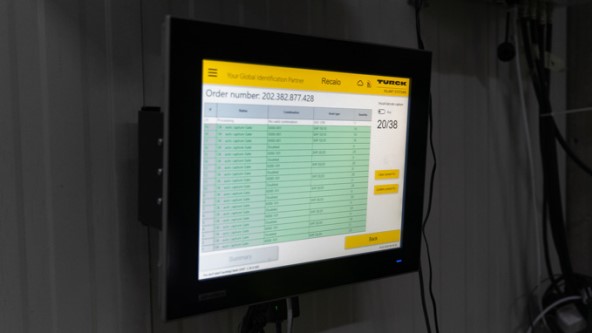
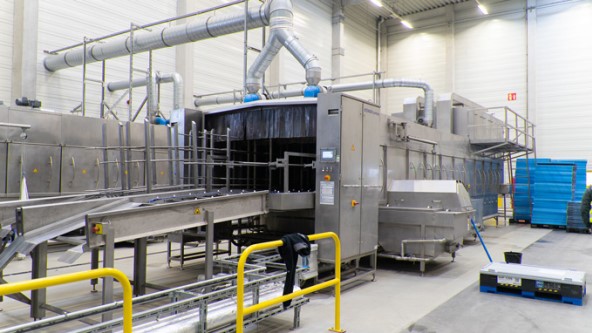
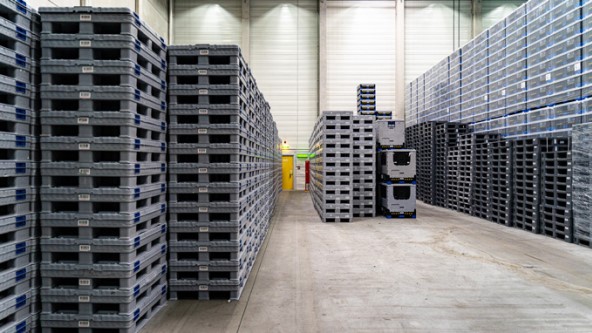
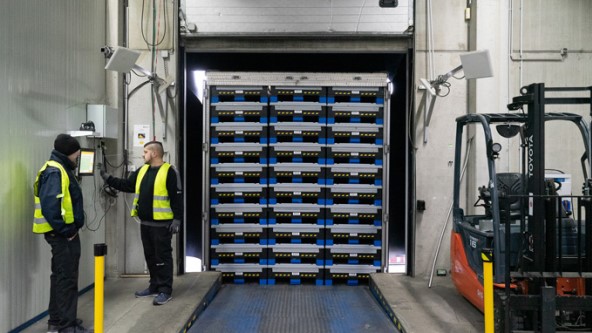
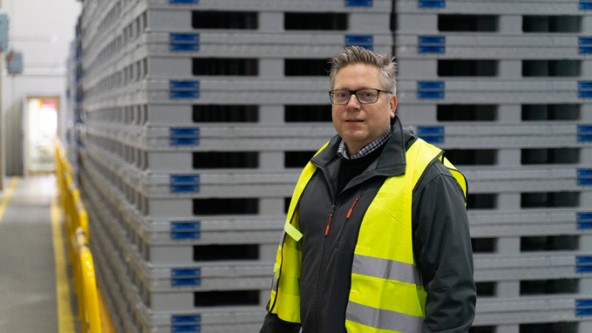
-turck-thumbnail.jpg)




